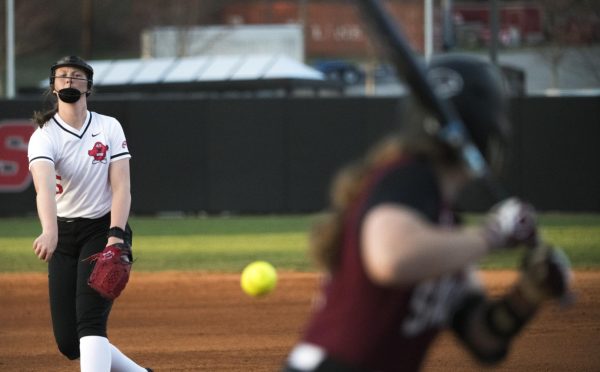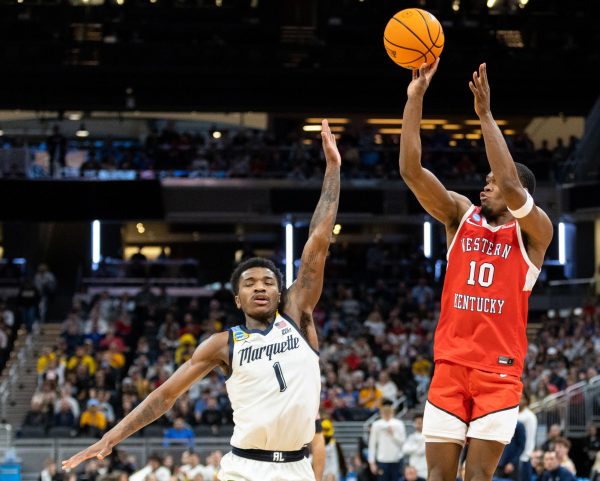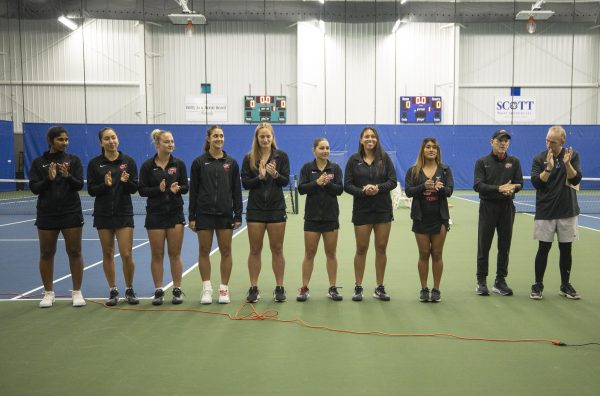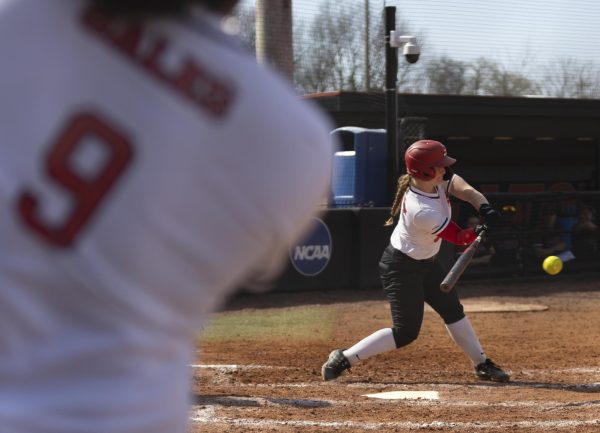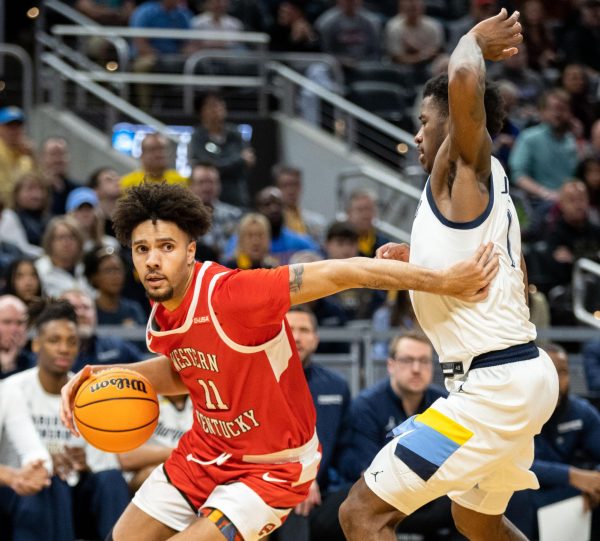WKU’s Bjork backs Taggart, football program
September 27, 2011
Much of the optimism for a competitive WKU football season was drained after a 44-16 loss to Indiana State Sept. 17 in Smith Stadium.
The loss was the Toppers’ 17th straight home defeat and dropped their 2011 record to 0-3.
Despite the early-season struggles, Athletics Director Bjork said Head Coach Willie Taggart and the rest of the WKU football program has the athletic department’s full support.
“One game, as bad as it was, doesn’t define this program, or doesn’t define a head coach,” Bjork said. “We have to stay the course.”
Taggart’s record as head coach has now stands at 2-13, while the program’s record in its two-plus years as a full-member of the Football Bowl Subdivision has fallen to 2-25.
But Bjork said Taggart, a former Topper quarterback and assistant coach, is still the right man for the job.
He said Taggart stayed at the stadium all night following the Indiana State loss, watching the game film four times.
“No one cares about this program more than Willie Taggart,” Bjork said. “He’s pouring his heart and soul into this program. We believe in what he’s doing.”
As for the long term, Bjork said the recent conference realignment phenomenon has made him more thankful WKU is now an FBS member as opposed to the Football Championship Subdivision.
While some have questioned the move by school president Gary Ransdell and Bjork’s predecessor, Wood Selig, to become the 120th member of the FBS, Bjork said life is more stable in college football’s top flight.
“In this time of uncertainty with conference realignment, to me it validates the decision to go to (FBS) football,” he said. “We’re part of that conversation. If we were (Football Championship Subdivision) we wouldn’t be part of that conversation. We’d be at the mercy of the 119 programs dictating what’s going to happen.”
In regards to conference realignment, Bjork said Thursday that WKU has yet to be contacted by any other conferences in the wake of the recent swift-moving conference realignment talk.
Bjork said the reason for that is because of the constant changing nature of realignment talks, calling it “dynamic.”
“Obviously we’re in dialogue with our league and our commissioner, and our president is in dialogue with his colleagues,” he said. “But we haven’t reached out, and we haven’t been contacted by anybody. It’s changing hour by the hour.”
Most recently, Syracuse and Pittsburgh formally applied to be members of the Atlantic Coast Conference, and East Carolina submitted an application to the Big East.
Last Wednesday, the Pacific-12 announced that it will not expand, potentially putting the brakes on the possibility of four “super conferences” forming. With the Pac-12’s announcement, the chances are even higher for the Big 12 to remain mostly in tact.
Bjork said the formation of such “super conferences” would not be healthy for college athletics.
“When people really analyze the super conferences, there was really no clear definition of what that would look like,” he said. “I don’t think anyone truly felt that that was the right thing for college athletics.
Bjork said on top of that, no one has asked the question of what’s best for college athletics — in all divisions.
“Everyone has to protect themselves because these are the institutions we work at,” he said. “But no one has ever said, ‘Hey, let’s get out a map or let’s get out all the issues that are on the table and say what’s best for college athletics.
“That’s probably the most disappointing thing.”
Bjork said the Sun Belt Conference held a conference call Sep. 20 for athletic directors to discuss the recent movements and discussions in regards to conference realignment.
But on Thursday Bjork reiterated what he’s said for some time — that WKU is content in the Sun Belt.
Likewise, he said WKU isn’t thinking about a possible move to Conference USA or the Mid American Conference.
“We’re attractive. We have a great resume. We’ve got the resources, the ingredients…We’re comparable in many ways to those schools in many ways,” he said. “But to say what might happen or speculate, that doesn’t do you any good.”













![Students cheer for Senator at Large Jaden Marshall after being announced as the Intercultural Student Engagement Center Senator for the 24th Senate on Wednesday, April 17 in the Senate Chamber in DSU. Ive done everything in my power, Ive said it 100 times, to be for the students, Marshall said. So, not only to win, but to hear that reaction for me by the other students is just something that shows people actually care about me [and] really support me.](https://wkuherald.com/wp-content/uploads/2024/04/jadenmarshall-1200x844.jpg)

